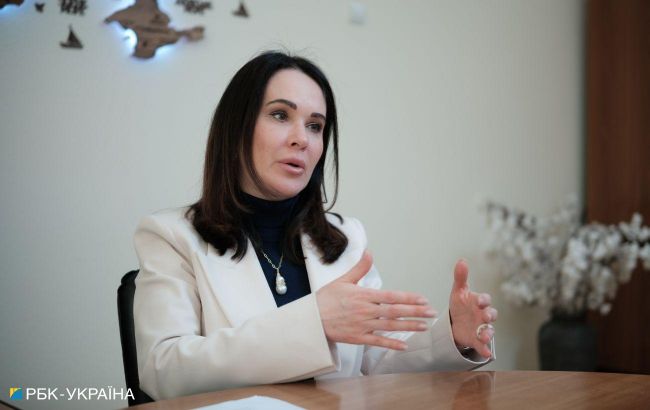Mongolia risks ICC expulsion after refusing to detain Putin
 Photo: Deputy Head of the Office of the President of Ukraine Iryna Mudra (Vitalii Nosach, RBC-Ukraine)
Photo: Deputy Head of the Office of the President of Ukraine Iryna Mudra (Vitalii Nosach, RBC-Ukraine)
The Assembly of States Parties to the International Criminal Court may expel Mongolia from the Rome Statute for its refusal to arrest Vladimir Putin, Deputy Head of the Office of the President of Ukraine, Iryna Mudra, stated in a comment to RBC-Ukraine.
"Such a possibility for the Assembly to make an appropriate decision exists," she said, explaining that this would mean Mongolia would lose the tools of international criminal justice.
According to Mudra, the world must respond to Mongolia's actions.
"So far, the Mongols are pretending that nothing has happened and will not comply with the decisions of the International Criminal Court. On October 24, 2024, the Pre-Trial Chamber of the ICC recognized that Mongolia, by failing to arrest Putin when he was on its territory and not handing him over to the Court, failed to comply with the Court's request for cooperation in this matter, in violation of the provisions of the Rome Statute," she said.
Mudra explained that under the provisions of the Rome Statute, Mongolia was obligated to cooperate.
"The obligation to cooperate meant they had to arrest and transfer Putin to the ICC. They did not do this," Mudra noted.
According to her, given Mongolia's refusal to cooperate with the Court, the Chamber found it necessary to refer the matter to the Assembly of States Parties. This is the highest body of the International Criminal Court.
"As far as we know, the Assembly held a meeting at the beginning of December, but unfortunately, I have no information about the Assembly's decision," the Deputy Head of the Presidential Office said.
Mongolia did not arrest Vladimir Putin during his visit to the country in September 2024, despite an arrest warrant issued by the International Criminal Court (ICC) in March 2023.

